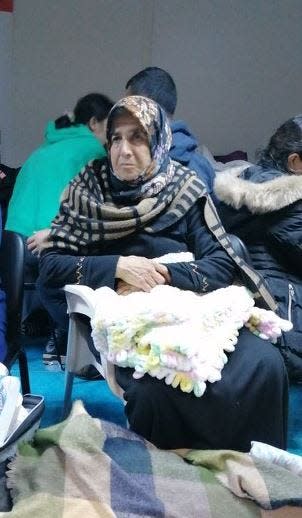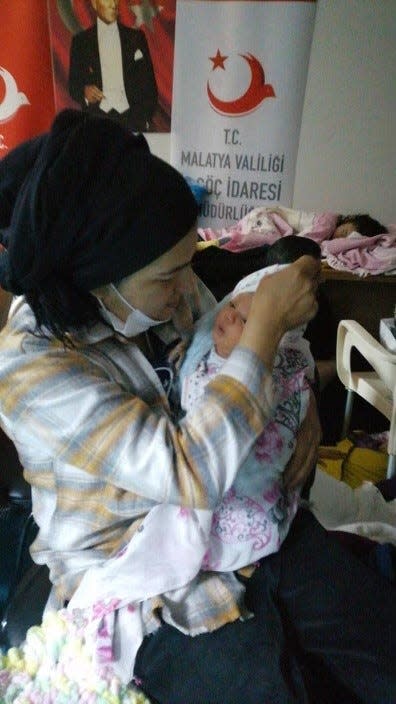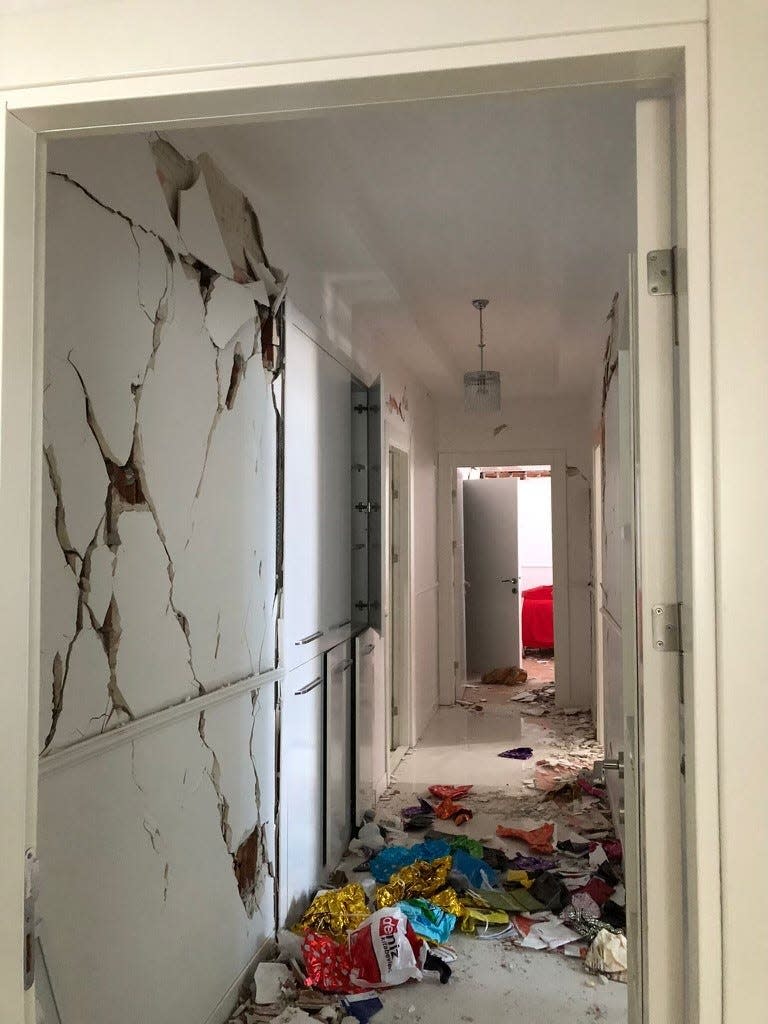Fort Collins resident raises funds for family following deadly earthquake in Turkey
When the 7.8 magnitude earthquake hit Servet Dag's homeland two weeks ago, all the Fort Collins resident from Turkey could do was pray and wait for word about his family.
His parents live in Adiyaman near the Syrian border, and his younger sister lives in Malatya, both of which saw catastrophic damage and loss of life.
His sister, Sultan, had given birth by emergency caesarean section five days earlier and his mother, Fatma, had traveled to Malatya be with her. When the earthquake struck at 4 a.m., the new parents, grandma and newborn fled their fourth-floor apartment out into the street along with tens of thousands of other across the region.
The death toll from the Feb. 6 quake is estimated to be more than 43,000 people, including several thousand who died in Syria. Tens of thousands more were injured and hundreds of thousands were left homeless, including Servet's sister and family.
Aftershocks continue to rattle Turkey, injuring or trapping more people inside already damaged buildings.
His brother-in-law's barbershop was destroyed and their apartment rendered unlivable. For the immediate hours following the quake, the family worked to come up with a plan. "They had to find a new place," Servet said. Around midnight they took shelter at a refugee camp where they stayed for two nights and were able to get food.
Sultan, still recovering from her C-section, and her baby, Yusuf Ali, hadn't eaten. Food was scarce. "They had to scrounge for it," Servet said. Their temporary shelter wasn't going to be a long-term fix, so they decided to try to get to Istanbul, 18 hours away, where another sister and her family lived. "I was worried about my sister; how was she going to feed her baby," Servet said.
His father tried to make the two-hour trip from Adiyaman to Malatya to retrieve his family and get them to Istanbul, but the roads were impassable.

With tens of thousands of people trying to make their way out of the city, buses were full but Sultan's husband was able to get two tickets for her, the baby and her mother. Sultan's husband stayed behind to try to rebuild his barbershop.
Before they could leave, Servet asked his sister to see medical staff at the shelter to make sure she was strong enough to travel. "They said she was OK to make the trip," he said.
Still, travel was arduous. Sultan still had stitches from the C-section, food was scarce, hygiene minimal and they were sleeping in their seats, Servet said. "I can't imagine what she was going through. I was worried about infection" and her ability to produce enough breast milk to feed the baby, he said.
Today, the family is safe in Istanbul, living with her sister's family in a two-bedroom house. It's tight but everyone is safe and healthy, Servet said. His brother-in-law is working on fixing the barbershop so he can start working again. If he isn't working, he can't support his family, said Servet, who is helping financially as best he can.

Being 6,000 miles away during the crisis "has been difficult," he said. "Family is very important. I am trying to help as much as I can." Recovery "will be a long process ... it will take years to heal the region."
He feels fortunate that his family is alive and safe while so many others are mourning the dead. A childhood friend and the friend's child were trapped under the rubble of their home. His friend's wife and another child were able to get out. Turkish President Recep Tayyip Erdogan reported about 1.6 million people are being housed in temporary shelters.
"Every single one of the 43,000 dead was a body who is unable to be with their family; so many children orphaned," said Servet, who has started a GoFundMe page to raise money for earthquake victims, including his family.
A fundraiser held by Fort Collins' small Turkish community last weekend helped raise money, although the amount is still being tallied, Servet said. More fundraisers will be coming.

How to help victims of the earthquakes in Turkey
On Facebook, check the Turkey Strong group.
Turkish Red Crescent (Red Cross affiliate)
Red Crescent organizations in both Turkey and Syria said their teams were helping with recovery and aid efforts. Both organizations are members of the International Red Cross and Red Crescent movement, an international network of disaster relief agencies.
The American Red Cross said Turkish Red Crescent workers and volunteers were distributing food and medical aid.
The White Helmets
The White Helmets, also known as Syria Civil Defense, are a humanitarian aid organization that operates in rebel-controlled areas of Syria. The volunteer group has experience providing emergency services to the victims of the country’s civil war.
The White Helmets said it had mobilized 3,000 volunteers to help search for earthquake victims.
It asked for donations to support its efforts.
Doctors Without Borders
Doctors Without Borders is another humanitarian medical aid group.
The nonprofit said its staff was providing medical supplies and support to 23 hospitals treating earthquake victims in Idlib and Aleppo in Syria. It started a donation page for its earthquake recovery efforts.
International Blue Crescent Relief and Development Foundation
The International Blue Crescent Relief and Development Foundation has offices in Gaziantep, Turkey, near the epicenter of the quake, and has been providing aid to victims since the first quake struck on Feb. 6. The foundation set up a relief fund.
Charity Navigator tips
Charity Navigator, which rates charities, gives the following tips on giving to disaster relief.
Donate to reputable, registered charities.
Monetary donations are the most effective.
Consider giving monthly donations for long-term recovery efforts as many disaster relief groups see donations taper off after just a few weeks.
Charity Navigator has also published its own list of organizations aiding in Syria and Turkey.
USA Today contributed to this story.
This article originally appeared on Fort Collins Coloradoan: Fort Collins resident raises funds for family following Turkish quake

